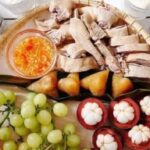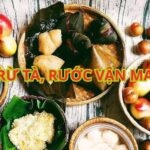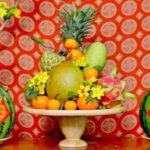The Dragon Boat Festival, also known as the “Insecticidal Festival,” falls on the fifth day of the fifth lunar month annually and is one of the most important traditional holidays for Vietnamese people. It is not only a time for detoxification and disease prevention but also a moment for family reunion and ancestor worship, wishing for a year of good health, peace, and luck.
For the Vietnamese, the offerings on this day carry profound cultural and spiritual values. Here are three traditional foods commonly found on the altar during this festival that you should prepare to show your reverence to your ancestors.
1. Sweet Rice Wine – A Symbol of Purification
Sweet rice wine is the first dish mentioned when it comes to the Dragon Boat Festival. According to folk belief, this dish helps to “kill insects” in the body and improves digestion during the hot summer months.
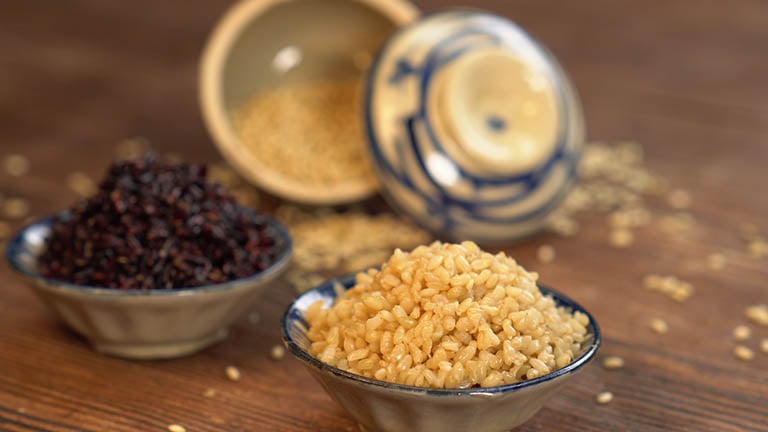
Ingredients:
- 1 kg of glutinous rice (either yellow flower rice or black sticky rice, depending on your preference)
- 2 sweet rice wine starters
- A little white sugar and lotus leaves
Instructions:
Rinse the rice and soak it overnight. Then, steam it until cooked and let it cool down. Crush the rice wine starters and sprinkle them evenly over the rice, mixing gently. Place the rice in a clay pot lined with lotus leaves, cover tightly, and ferment for about 2-3 days to allow natural fermentation. When serving, you can add a little sugar to enhance the flavor.
2. Bánh Gio – Refreshing and Easy to Digest
Bánh Gio, or tro cake, is a traditional treat commonly enjoyed during this festival. It has a light and refreshing taste, aiding in cooling down and improving digestion. This dish also represents the purity and simplicity of the ancient philosophy of life.
Ingredients:
- Good quality glutinous rice
- Lye water (obtained from burning bean husks or straw husks)
- Dong leaves and chít leaves for wrapping
Instructions:
Soak the rice in lye water for about 20 hours, then rinse and drain it. Wrap the rice with cleaned leaves and tie tightly. Boil in a large pot of water for about 2-3 hours until cooked. Bánh Gio is usually served with molasses or palm sugar, resulting in a sweet and refreshing taste.
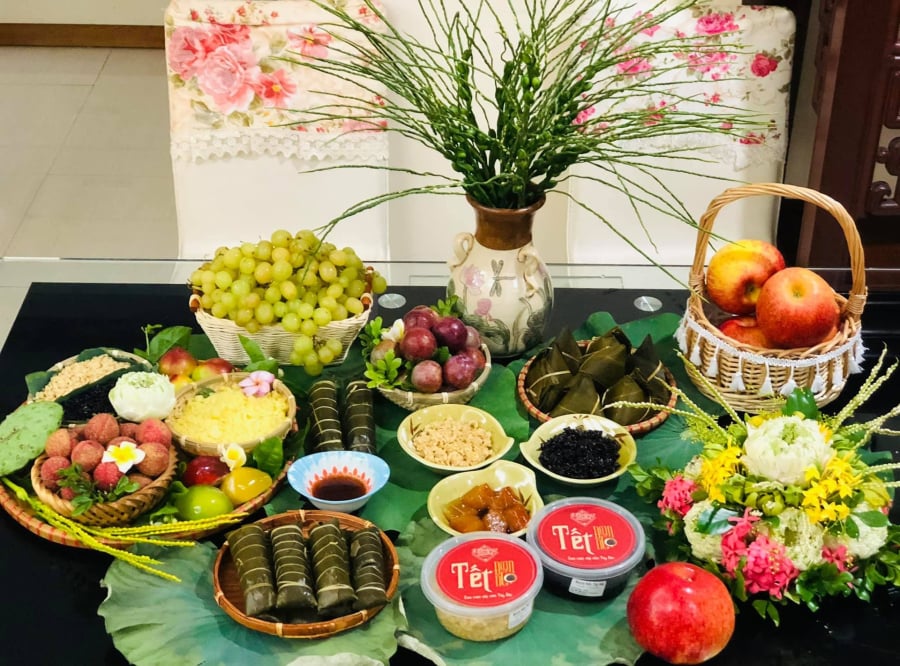
3. Summer Fruits – Offering of the Five Fruits
The altar during the Dragon Boat Festival must include characteristic summer fruits such as plums, lychees, watermelons, mangoes, dragon fruits, bananas, and jackfruits. Apart from their nutritional value, these fruits symbolize abundance, blessings, and good luck. It is advisable to choose fresh and colorful fruits to enhance the aesthetic appeal of the offerings.
Spiritual Significance and Regional Customs
The Dragon Boat Festival holds profound spiritual significance in the lives of the Vietnamese people. Anciently, it was believed that at noon, when the yang energy was at its peak, the body could easily eliminate toxins if the right foods were consumed. Therefore, the ceremony and the consumption of sweet rice wine, fruits, and tro cakes in the morning of the fifth day of the lunar month hold special importance.
The festival takes on different hues in different regions:
- Northern Vietnam: White sweet rice wine, bánh gio, plums, lychees, along with savory dishes such as boiled meat and balut are favored.
- Central Vietnam: Additional treats include bánh ú tro (a type of sticky rice cake), mung bean porridge, and traditional sweets.
- Southern Vietnam: Black sweet rice wine, floating rice cakes, and various tropical fruits are commonly enjoyed.
Furthermore, some places maintain the custom of hanging artemisia leaves, five-color amulets, or tying red threads around children’s wrists to ward off evil spirits and protect their health.
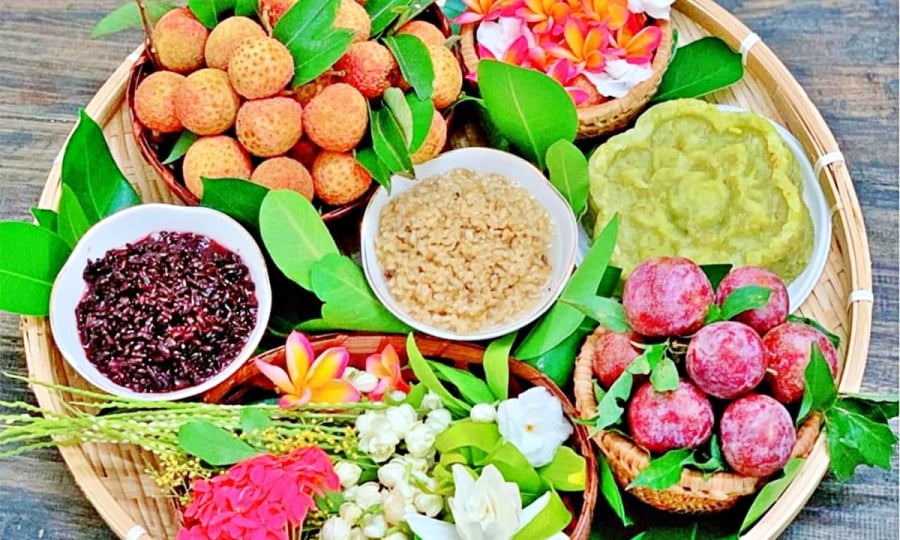
Preparing the Altar for the Dragon Boat Festival
The altar should be set up early in the morning, including the following items:
- Incense, candles, and fresh flowers
- Sweet rice wine
- Bánh gio or bánh ú (sticky rice cakes)
- Seasonal fresh fruits
- Betel and areca nuts, tea
- Savory dishes (depending on the family): sticky rice, boiled meat, balut, etc.
After lighting the incense, the host should express their gratitude to their ancestors in a simple prayer, wishing for their blessings for the family’s well-being, good health, academic progress, and prosperity.
The Dragon Boat Festival is not just about warding off illnesses but also about family reunion and honoring one’s roots. Preserving the traditional rituals on this day is a way to connect the past with the present while nurturing the cultural identity in modern life.
Let this year’s Dragon Boat Festival be a special occasion for all family members to gather around a warm meal, cherishing the spiritual values that have accompanied the Vietnamese for generations.
Ancestral Reminder: Dragon Boat Festival Superstitions – Performing This One Task Brings Good Fortune and Drives Away Evil
The Dragon Boat Festival, also known as the Double Fifth Festival, is a traditional holiday originating in China and celebrated in several East Asian countries. It occurs on the fifth day of the fifth month of the lunar calendar and is marked by a series of cultural and culinary traditions. The festival holds a significant place in the hearts of many, serving as a reminder of the importance of pest and evil spirit eradication, health, and community.

























